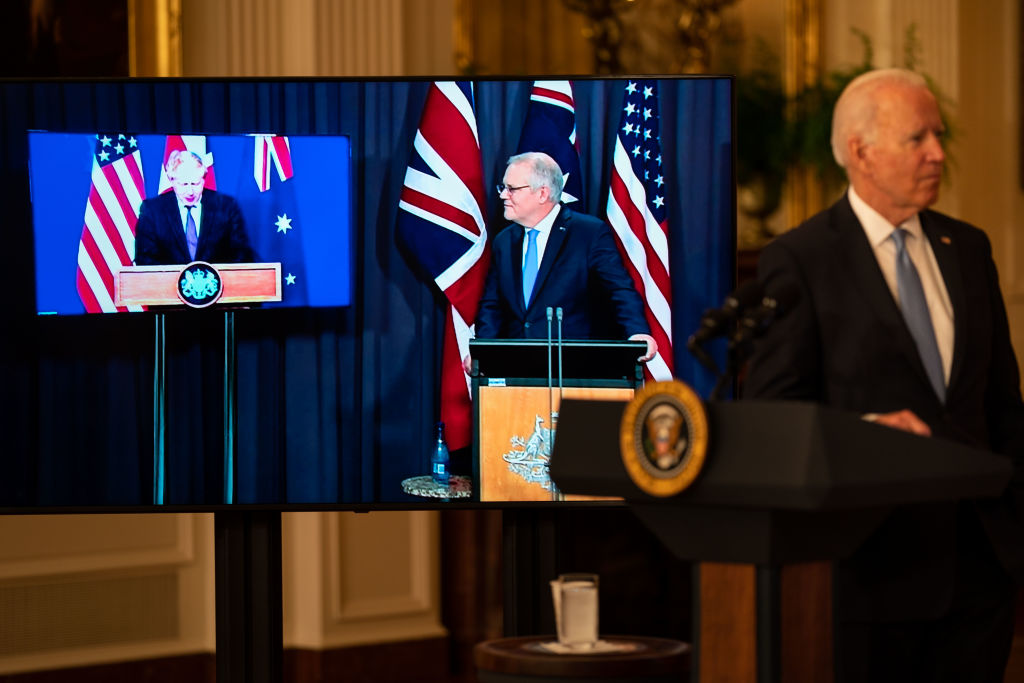
So we’ve gone all in. The trend lines have been there for a while, but as
several commentators have pointed out already, the awkwardly named AUKUS is a step change in the level of commitment by Australia to the United States.
The ‘forever partnership’ binds us more closely to America at a time when there was starting to be debate, especially among conservative thinkers, about the need for a more independent Australian capability. That debate wouldn’t have passed unnoticed in Washington. Given the apparent willingness of the US to share exceptionally closely held technology, indications are that it is a very deliberate choice on the part of the United States.
If the strategic rationale of AUKUS is to build capability in the Indo-Pacific and offset China, the tripartite nature of the agreement bears further consideration. Despite cultural affinities and longstanding ties—including a separate shipbuilding program for Australia’s Hunter-class frigates—the United Kingdom is not a natural partner in the Indo-Pacific. That raises the question of whether the US is seeking to bolster the UK’s strategic weight and outlook, at a time when it has retreated back across the Channel. If so, AUKUS may be stretched thin, seeking to cover many foreign policy and strategic objectives across three democracies weakened at home.
That stretch in the AUKUS arrangement is reflected in the amount of white space in and around the agreement. Of course, that’s not unexpected—new initiatives typically deepen in complexity over time. But it’s easy to underestimate the amount of effort needed to rebase Australia’s own capabilities, especially if, as many argue, urgency in the face of a rising China was one of the factors driving the decision to dump the French submarine contract. On the submarines alone, the Australian government has given itself 18 months to figure out the what and how of the new program.
That’s going to be tough: it’s a complex endeavour. The tasks include negotiating the termination of current arrangements, reconfiguring infrastructure, and recruiting and retaining the skills needed for a new, complex and dangerous industry.
More broadly, the
White House statement reflects a pressing need to uplift not simply Australia’s military capability—a major task in itself—but its technological capability as well. The technology uplift will depend heavily on the very sectors the government has neglected or actively eroded over the past few years. It would be surprising if American analysts of Australia haven’t flagged this as a concern, both in assessing our role as an ally and in shaping this new initiative. While AUKUS has been cast as a defence initiative, it will not succeed unless the government engages civil society and civilian capability more broadly.
As importantly, the government will need to improve its own administrative and governance capabilities. Australian government prioritisation, procurement and contractual processes and management have lost their discipline and rigour. A more mature and knowledgeable relationship with industry is needed. That in turn implies a re-professionalisation of a public sector derided by its own ministers.
AUKUS—as proffered thus far—is about cementing old ties and shoring up defences against a rising revisionist power. The statements, the language, don’t offer a vision of the sort of future that we, the United States and the United Kingdom want to see in the region, or globally.
AUKUS also seems unwarrantedly exclusionary at a time when both Australia and the US need to build more inclusionary structures and processes in the region. Work will be needed to make existing and nascent structures, such as Five Eyes and the Quad, complementary to the new arrangement. Additional effort will be needed to engage nations such as Indonesia, which will now be contemplating a more muscular southern neighbour.
In short, what the agreement most lacks is a strategy. Pretty words and a bundle of exclusive nuclear technologies for naval propulsion do not fundamentally change the power balances of the Indo-Pacific. And that’s assuming we can digest the rich platter now set before us. It’s yet to be seen whether the price put to the Biden administration by the Morrison government for cementing the cracks and reining in uncertainty is too steep—for Australia, as much as for the United States.
 Print This Post
Print This Post